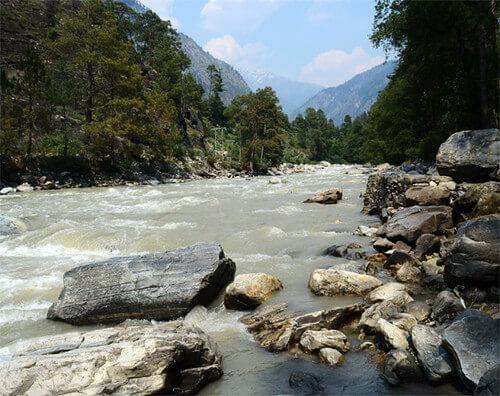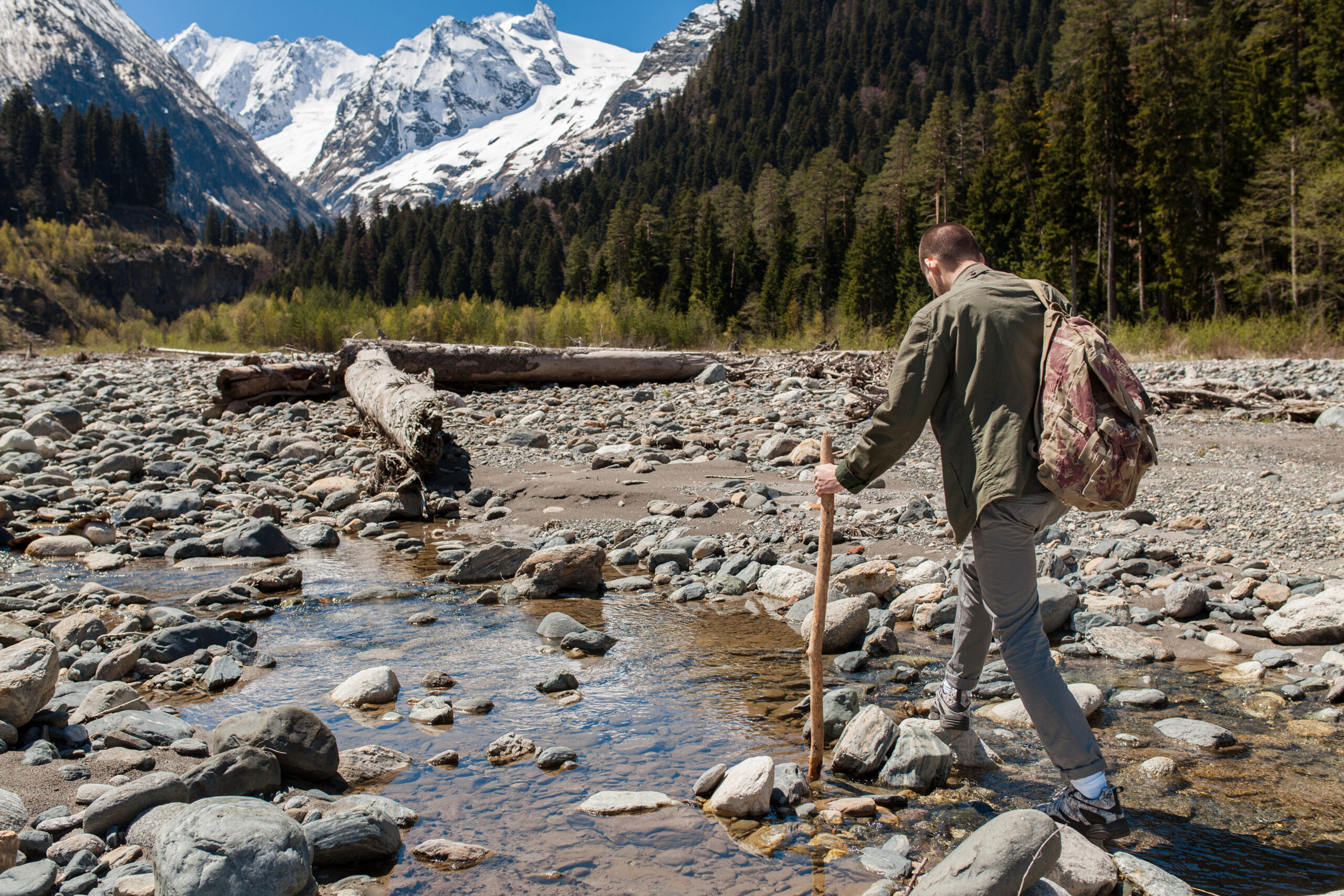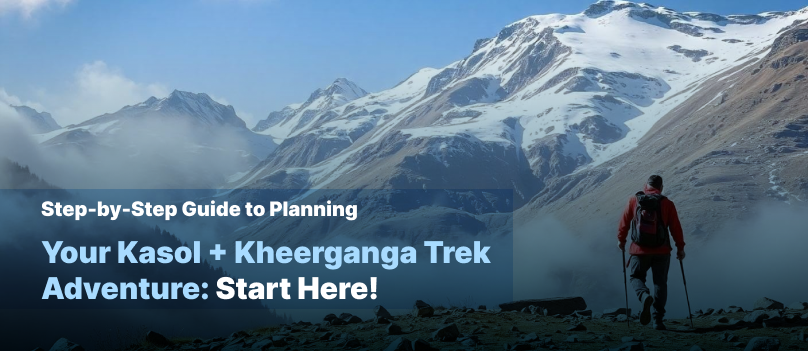Introduction
Do you want a vacation that would take you into the wilderness where your body is challenged and your spirit is enshrouded? All your needs will be met by the Kasol Kheerganga Trek Guide. This trek is the perfect mix of stunning treks and beautiful nature and amazing food, moreover, it connects cheerful and rather bohemian Kasol, and rather Sheeranga which is relative untouched corner of the Himalayas. Interested in knowing why this trek option is unique? And so now let us look into further details of the fascination that this exciting travel holds.
Why Choose Kasol and Kheerganga?
Kasol, affectionately known as the Amsterdam of India, is more than just a starting point—it’s a cultural haven for backpackers, buzzing with life and scenic beauty. The Kasol Kheerganga Trek Guide is your ultimate resource for discovering this transformative odyssey. Kheerganga promises a magical experience with its renowned hot springs and expansive mountain vistas. This isn’t merely a trek; it’s a transformative odyssey. “Convinced that Kasol and Kheerganga should be your next adventure destination? Scroll down to start planning your journey!”
Preparing for the Trek
The beginning of the Kasol Kheergenga Trek is a perfect chance to spell the stunning views and don’t miss the real Himalayas trekking. It is important to take the right precautions. Below is the Kasol Kheerganga Trek Guide which will take you through detailed planning procedures including the correct time of the year to go on the trek, what to pack and how fit you should be. This trek is really going to something and get yourself ready to fully maximize this amazing trip!
Best Time to Visit
Kasol and Kheerganga are two attractive destinations for tourists, and the geography of this place looks different in different seasons, but the best time to start a journey this area is from April to June and from September to November. These two seasons are typical of the best times to visit and trek since the weather is moderately hot during the day and cool in the evening.
April to June: The first two months of this period are now spring and early summer in the Himalayas; the snow has long melted from winter to produce green lands which is dotted with many flowers. During the day the climate is warm and this is the best time to do trekking.
September to November: There is also autumn in this climatic condition, beginning from the end of monsoon season, the sky is clear. For some reason the air is incredibly transparent, the forests and fields recently washed and radiating with a clarity absent during the rest of the year. This period also helps to miss the rains of July and August, during which the trails are terrible due to the highly rainy season.

What to Pack
1. Gear and Essentials
- Waterproof Clothing: The climate is quite wet, sometimes it rains even if it is not the raining season of monsoon season is from July to September. A waterproof jacket and pants are generally excellent items that will come in handy when in high rainfall regions.
- Durable Backpack: You need a strong backpack with a cover to prevent your equipment from getting wet and destroyed by rain.
- Sturdy Trekking Shoes: minor trails are so numerous along the slopes where at time one would have wish for better grip and strong ankle support shoes therefore when hiking it is advisable to wear quality trekking shoes.
- Reusable Water Bottle: Drink water by always having a reusable water bottle with you. Sources of water along the routes are limited and the level of plastic pollution should be minimized in these areas.
- Snacks: Energy bars, dried fruits and nuts are all light and easy to carry products which will help to sustain in the trek.
- First Aid Kit: Aim to have at least four types of medications with you: band aids, an antiseptic cream, altitude sickness medication and prescription drugs specific to an individual.
- Camping Tent: In case you intend to camp, this must be having a light tonnage and made of strong material as the tent. The nights can sometimes be very cold so one has to ensure that they capture a tent that can Holding up this kind of climate.
- Camera: Use a good quality digital camera or a camera of an android or iPhone to take beautiful landscapes. However, it should be protected against moisture and dust.
2 Physical Preparation: Conditioning Your Body
This will be tough trail containing steep inclines and decline. Just like what kind of gear will be important, your body has to be ready for the kind of work it is going to be involved in.
- Cardiovascular Training: Consult them at least one month before your trek. Concentrate on exercises that help to improve the cardiovascular fitness so as to prepare yourself for long days of walking that are involved in the survival jobs.
- Leg Strengthening: The trail involves rigorous trekking, requiring strong legs. Squatted, lunged and step up productions should form part of your exercise regime in order to develop sturdier muscles.
- Altitude Training: If possible, try to arrange for high altitude training so as to put your body through basic adjustments. Otherwise, cycle exercise regime high intensity training HIIT aerobic and anaerobic demands for altitude trekking.
- Flexibility and Balance: Exercises such as yoga or pilates make it possible the people to develop the balance and flexibility as well as reduce possibility of the danger on the terrains that are uneven.
The Journey Begins: Getting to Kasol
Kasol lies nestled in the rising Himalayas and is as paradise for all the trekkers and nature lovers out there. The village acts a starting point for many treks such as the enchanting Kheerganga trek. But let me tell you the truth while preparing for the physical activity of trekking, the first part of the journey is to reach Kasol. Here’s a comprehensive guide covering the three main modes of transportation to reach this serene village: by air, by road as well as by rail.
By Air: Sky Route to the Mountains
For the public who may opt for air transport, Kullu Manali is the nearest airport that is located at Bhuntar. It has the daily connectivity with Delhi, Chandigarh and Mumbai by several domestic airlines that have their flights operational for this airport. The journey to Kasol starts from Bir after landing and it takes about 31 kilometers cab drive.
By Road: A Drive Through the Clouds
For instance, if the candidate takes an artwork as a travel goal, then he or she may prefer to drive to the location, like Kasol for the freedom provided on the road. The roads to reach Kasol pass through the valley amidst the Himalayas and are quite scenic and comparatively a bit more free to roam around the nearby villages. For those who do not have private car transfers, there are buses which operate between Delhi- Chandigarh- Manali and Kasol. It is approximately a twelve hour journey from Delhi to Kasol and the travel offer an overnight travelling opportunity avoiding extra cost of accommodation for the night.
By Train: Tracks Leading to Trails
While Kasol does not have its own train station, travelling by railway will start with a rather twist in the journey. The largest railway station is in Chandigarh and is approximately 296 km away from Kasol. Kasol is fairly easily accessible by road, from Chandigarh one can either take a bus or take a taxi. The bus journey generally can take anything from, 8 to 10 hours and this will afford you a glimpse of the Punjab and Himachal Pradesh countryside and towns.
Is it possible to get your dream adventure today? Yes you can, all thanks to Global Events Travel! It provide you with everything you will need to organise your trip, including professional trekking gudes and individually tailored travel plans that will make your travel as comfortable as posibble.


Exploring Kasol
Local Sights : Spend a couple of days acclimatizing and exploring Kasol before the trek. Sites like the Parvati River, Manikaran Sahib, and Malana are not to be missed.
Cafe Culture: For the record, the cafés that Kasol offers are not just for the food, they also present stunning views. You should take the time to try the food that you get in Himachal both while enjoying the views.
Culture and People: Engage with local residents and fellow travelers alike. The stories you’ll hear are often as memorable as the trek itself.
The Trek to Kheerganga
The Trails: Choose between two paths: the traditional route through Nakthan Village or a shorter, steeper trail via Kalga, each offering unique challenges and enchanting vistas.
Kheerganga’s Mythology: Legend says Lord Shiva meditated here for thousands of years. The palpable spiritual energy adds a mystical dimension to your trek.
What to Expect on the Trek: Encounter lush forests, cross bridges over rushing streams, and possibly spot wildlife. The trek’s highlight? A soothing dip in the hot springs at Kheerganga, famed for their healing properties.
Camping in Kheerganga: Major activities which tourists must engage in while in Kheerganga includes camping in the open fields in the night with sights of the sky and stars. Several organized camping sites are available or dig your own hole to be one with nature.
Environmental Considerations: As visitors, it’s our duty to preserve these natural wonders. Always carry back all belongings, especially plastic, and respect the environment.
Returning to Reality: Post-Trek Tips
Rejuvenating Post-Trek: Spend a recovery day in Kasol. A massage or relaxing by the Parvati River can help soothe your muscles after the trek.
Responsible Tourism: You work to consume locally produced foods and try to patronize local grocery stores and restaurants. It is a good idea to walk around and leave as little impact on the specific culture as you can example, littering any cigarette butts.
Conclusion
The path, from Kasol to Kheerganga is beyond mountains; it is about a journey within one’s own self. With every move you roll back not only the truth about the mountains but about yourself as well. Say hello to your Kasol Kheerganga Trek Guide with the purpose of making you are as ready as possible for this soul searching expedition. Ready to set off? Get your bags ready, and tighten your shoelaces, there is a mountain out there calling your name! Are you prepared to begin your first step in Kasol-Kheerganga trek? Come to us now to make it a reality!
FAQ's
Although it is relatively easy to navigate the trails, it’s advisable for beginners to take a guide who will show them around. At Global Events Travel, it is very easy to get professional guides who will make sure that a traveler has a good trip, all through the trip enjoying the views and clicking pictures of the beautiful scenes.
Expect minimal connectivity. Ensure important communications are completed before you start.
When it comes to the places to stay in Kasol, tourists can rent or book everything from local hostels and comfortable guest house to the cute riverside camps. No matter if you are searching for a cheap room to stay at or a cozy place to relax at after a long trip, Global Events Travel will gladly assist in your Kasol trip .
Experienced trekkers might manage a one-day return, but staying overnight in Kheerganga is ideal for experiencing its full splendor.
Currently, no permits are required, but always verify the latest regulations with local authorities prior to planning your trek.
“Still got questions? Drop us a message, and we’ll help you get ready for your Kasol Kheerganga Trek Guide adventure! At Global Events Travel, we’re here to ensure your journey is as smooth and memorable as possible. Let’s make your Himalayan dream a reality!”

